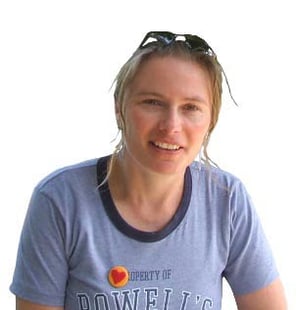

ANIMAFEST PRO | ANIMAFEST SCANNER VII | SIMPOZIJ O SUVREMENOJ ANIMACIJI | Panel 2 - WOMEN IN ANIMATION
The Polish Animation Tradition Updated: Some Reconfigurations from a Female and Feminist Perspective - Miriam Harris (Auckland University of Technology, New Zealand)
Polish animation has enjoyed a deservedly respected status in the field of animation studies, with high profile independent animators such as Jan Lenica, Witold Giersz, Daniel Szczechura, Jerzy Kucia, and Piotr Dumała creating a creatively rich, innovative, and award-winning body of work that spans the last sixty years. Several of the animated films that they produced under Communism feature qualities that came to be considered as hallmarks of Polish animation, such as absurdity, lyricism, and an existential darkness and despair.
Few female Polish animators – with the exception of Franciszka Themerson - were foregrounded during the Communist period. However, over the last thirty years, following the collapse of Communism, a number of notable female animators have emerged. Although they have studied animation at universities with professors such as Szczechura, Kucia and Dumała, and their work can be tied to aspects of the Polish animation legacy, their vision also diverges significantly.
This presentation will focus upon the work of three contemporary female Polish animators whose output I consider to be particularly innovative: Małgorzata Bosek, Marta Pajek, and Ewa Borysewicz. All have won awards on the festival circuit, and Pajek’s trilogy ‘Impossible Figures’ was screened at Cannes in 2018. Their artistic visions reconfigure various signatures of Polish animation by addressing subjects such as autobiography, domesticity, and relationships, from a female and feminist perspective. In considering both the features that can be linked to the Polish animation tradition, and the divergences, I will draw upon the writings of Polish animation theorist Hanna Margolis, contemporary feminist art historian Amelia Jones, and interviews with the animators themselves.
Dr Miriam Harris is a Senior Lecturer in Digital Design at the Auckland University of Technology, New Zealand. She has had essays published in the book Animated Worlds (2007) and the online Animation Journal, and curated a major exhibition on Czech and Polish animation – 24 Czech & Polish Animators – that was exhibited in Auckland and Portland, Oregon. She is the co-editor, with Lilly Husbands and Paul Taberham, of the recent book Experimental Animation: From Analogue to Digital (2019) published by Routledge. She is also an animation practitioner and her experimental animated films Soaring Roaring Diving (2009) and Warsaw, January 2011 (2013), made in collaboration with composer Juliet Palmer, have won awards at the Brooklyn International Film Festival, New York, and other international film festivals. She is a member of the editorial board for the animation journal Animation Practice, Process and Production, edited by Paul Wells.


